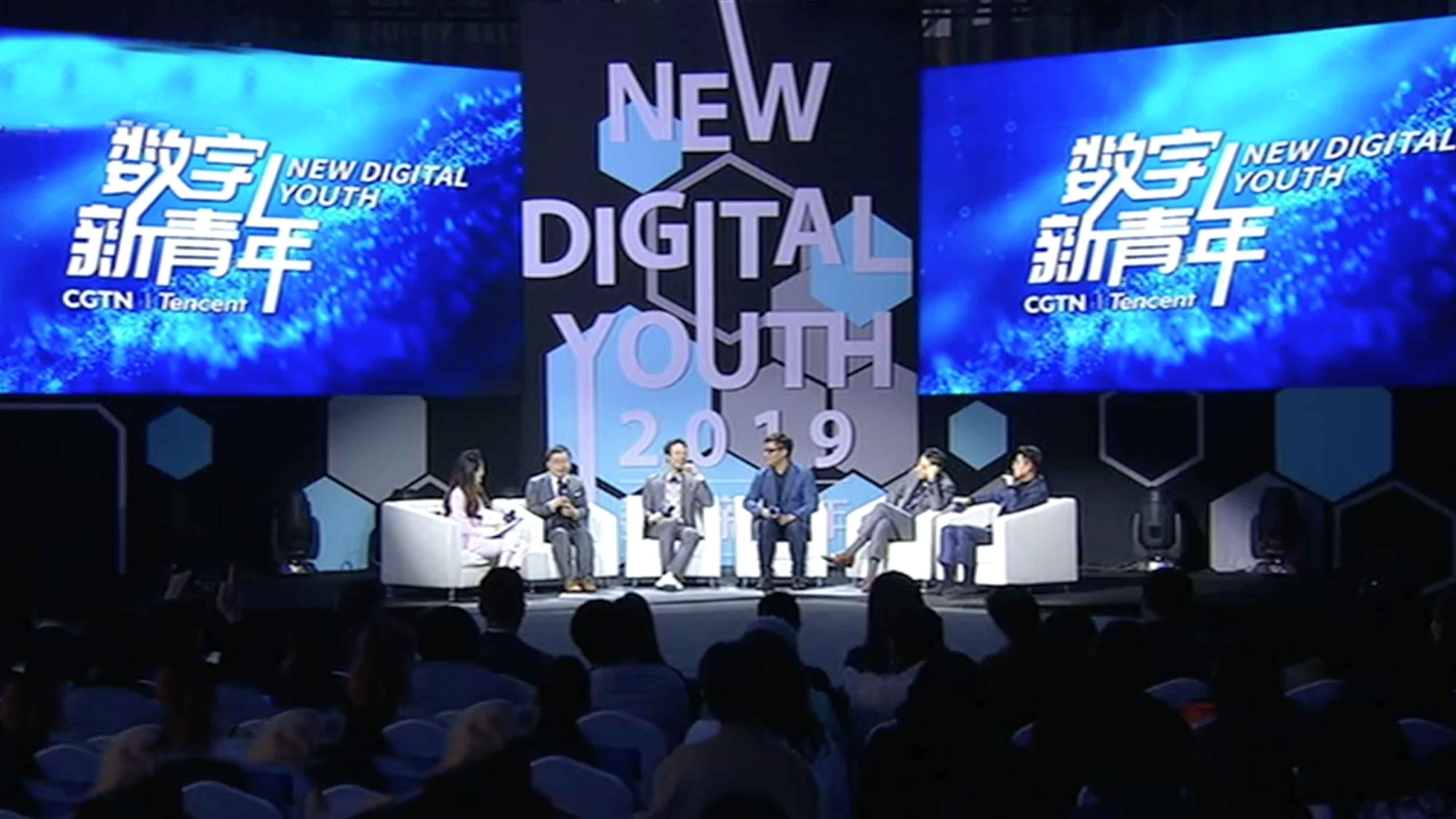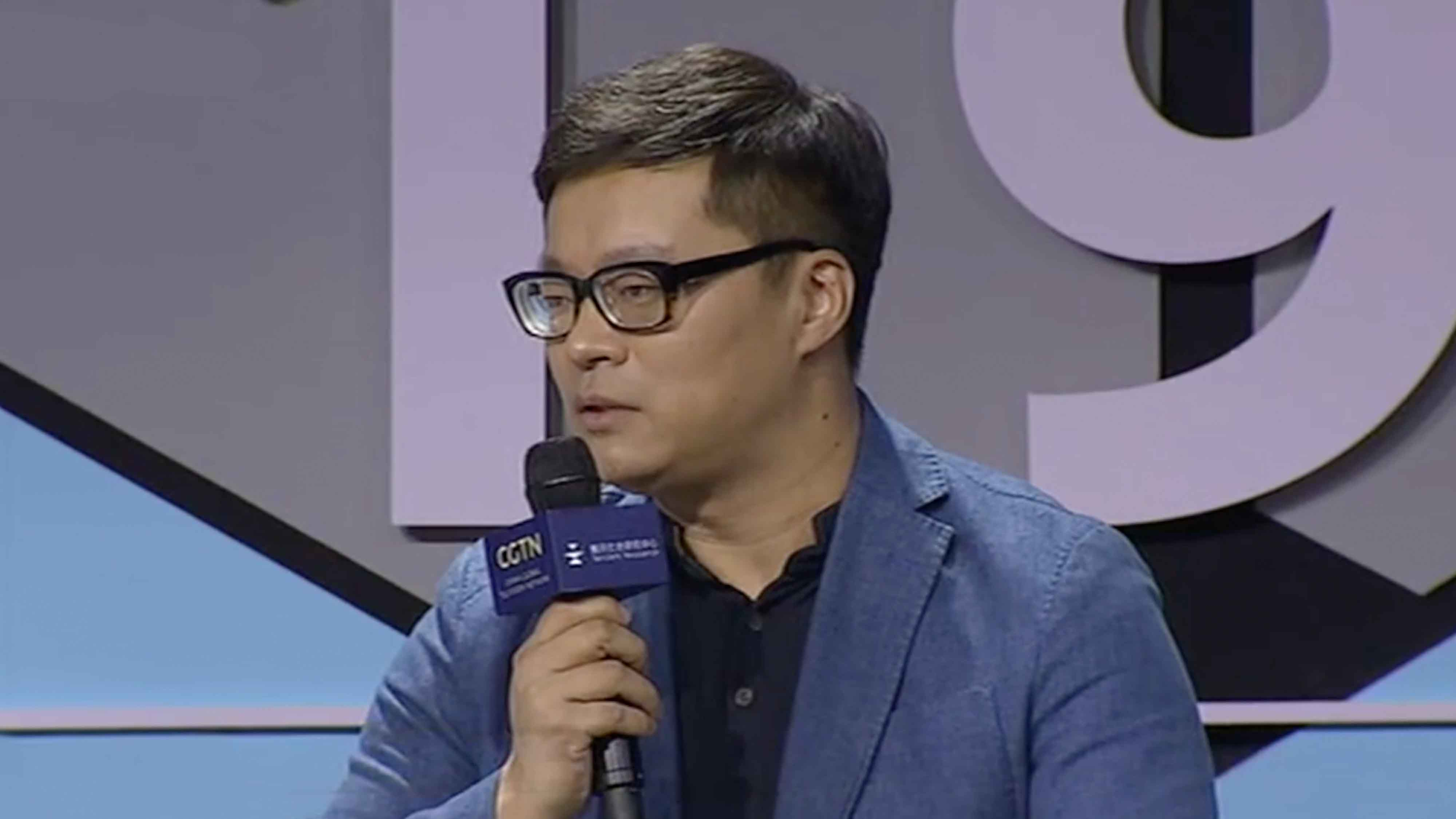01:00

What's your first impression of Millennials? Lazy, rebellious, fearless or innovative? They are a special generation born at the connection point of two centuries and that grew up along with the boom of new technology. While embracing the convenience brought by modern technology, can they also make use of it to better serve society or are they ruled by new tech?
"What I think is that people who are born with certain technology, we don't view it as a technology," said Yegor Shyslov, co-founder of the performance brand Xiangsheng Hits Foreigners. "We take it for granted," he said.
Yang Zhao, host of CGTN's Tech It Out program, said that certain people are going to benefit from new technology, such as technical aids. For instance, he saw hydrogel artificial muscles in the lab that mimic human muscle behavior. They can be powered by electricity and flax and become a mutual-benefit product in two or three decades.
According to Yang, by wearing such inventions, we can get a strong grip power just like Tom Cruise had in the "Mission Impossible" climb in the Tower of Dubai. "It can give you some extra support to your muscles even if you are older, they can help you keep balance," Yang added.
Some people believe that public perception can be changed dramatically in a short time, but for Malik, an entrepreneur and a social media influencer, it depends.
"It can easily manipulate you if you share a similar idea. Basically, they didn't influence you. You have that mindset in yourself already. It's just someone said it online and it's just clicked and you think it is right now," he added.
02:24

Living in a post-truth era
Zhou Kui, associate professor of new media and public policy studies at the Communication University of China, suggested that we are living in a "post-fact era," in which we see too much-fragmented information and people are easily influenced by emotional information, other than factual information.
Zhou explained that there are three layers of information: phenomenon information, knowledge and wisdom. The problem we're facing now is that people are possibly stuck in the first layer – phenomenon.
"We are over-informed but sometimes also misinformed, we need more time for the structural knowledge and wisdom," he said.
Yegor Shyslov added that this also called "fast-food" information. "We are so used to get things fast," he said. Shyslov noted that a short video would only last for 15 seconds and make you laugh, and it could arouse the viewer's sentiment of encouragement or excitement.
"It's kind of boosting you up for a little," he noted. But then, when time goes by, you realized that the quality of the laugh or information is not there anymore and wisdom becomes necessary. But "wisdom" takes time to grow, just like natural elements. "We have learned in the nature that it takes a day for a mushroom but it takes 100 years for a good tree to grow up."
This is even more noticeable with immersive technology. It's easy to bait for 30 seconds to achieve pleasure instead of the real stuff.
01:00

Chit-chat or Shakespeare?
Henry Li, dean of International Curtin University, said, "there is more chitchat on the internet than Shakespeare," but it's unfair to say that the internet is all about entertainment.
He asked, in our daily life, do you have a lot of Shakespeare? And do you have a lot of classical music? No, we have a lot of mundane activities.
Do we have media literacy in the digital age?
Zhou said many people do not care about privacy issues because they don't know the damage it might cause them or their families. "Media literacy is very important before you decide whether to post information," he stressed.
Li added that the point is "you understand the risks and how are you willing to take those risks." At a user level, he suggested social media companies be obligated to give users informed consent; and at the governmental level, he indicated that officials need to set up a legal framework to protect and regulate privacy issues.
Dialogue with Yang Rui is a prime time daily English talk show on CGTN. The 30-minute talk show covers a wide range of domestic and international topics, providing a balanced and critical perspective on current affairs and analysis within the framework of cross-cultural and multi-disciplinary comparisons.
Schedule: Monday-Sunday
Time (GMT): 0330, 1130, 1930
(If you want to contribute and have specific expertise, please contact us at opinions@cgtn.com.)